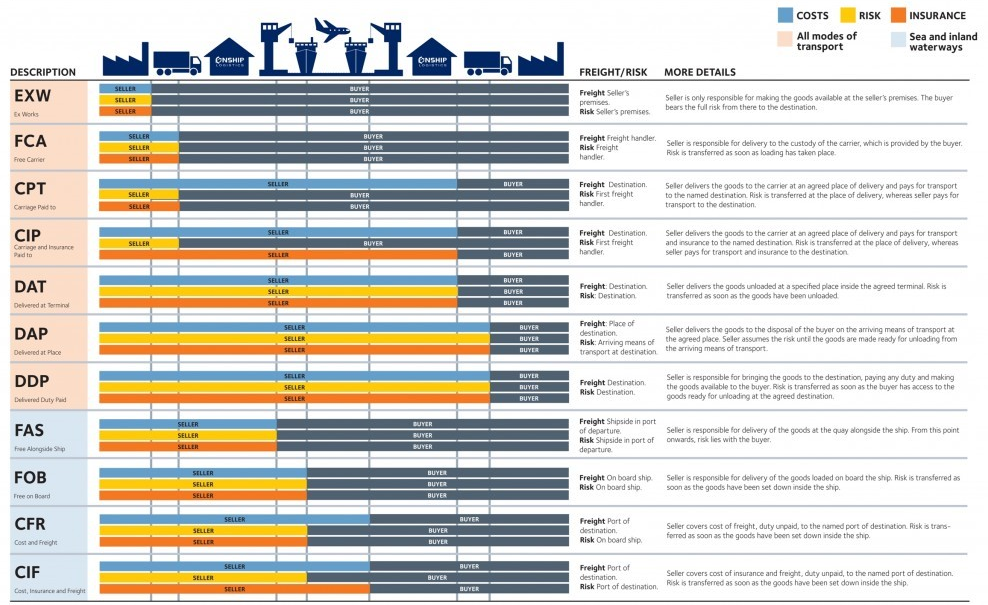Incoterms
04/04/2024
The purpose of International Commercial Terms (Incoterms) is to provide a set of international rules for the interpretation of the most commonly used trade terms in foreign trade.
Each Incoterms rule specifies:
The obligations of each party (example: who is responsible for services such as transport; import and export clearance..)
The point in the journey where risk transfers from the seller to the buyer
So by agreeing on an Incoterms rule and incorporating it into the sales contract, the buyer and seller can achieve a precise understanding of what each party is obliged to do, and where responsibility lies in event of loss, damage or other mishap.

Glossary of Terms
04/04/2024
Glossary of Terms
| LCL | Less than full Container Load |
| FCL | Full Container Load |
| CFS | Container Freight Station (Depot) |
| CY | Container Yard (Wharf) |
| FAK | Freight all Kinds |
| 20’ | Standard 20 foot long international container = 1 TEU |
| 40’ | Standard 40 foot long international container = 2 TEU or 1 FEU |
| TEU | 1 Twenty Foot Equivalent Unit |
| FEU | 1 Forty Foot Equivalent Unit |
| lbs. | Pounds – 2.204lbs = 1kg. |
| cft. | Cubic feet – 35.315 cubic feet =1 cubic metre |
| kg. | Kilogram – 1000kg = 1 tonne |
| cbm/m3 | Cubic Metre |
| Ex Works | Buyer bears all costs of transportation from seller’s premises |
| FOB | Seller responsible for costs up to Free On Board ship |
| C&F/CIF | Costs & Freight / Cost Insurance & Freight, seller responsible for costs to bring goods to named destination. Buyer’s responsibility for costs commences at ships rail |
| FIS | Free In Store – Sellers responsibility for all costs, including duty, for delivery into Buyers premises |
| DO | Delivery Order |
| APCA | Australian Port Charges Additional |
| CAF | Currency Adjustment Factor |
| BAF | Bunker Adjustment Factor |
| CABAF | Currency Adjustment Factor + Bunker Adjustment Factor |
| >td >Terminal Handling Charge | |
| TRC | Terminal Receiving Charge |

